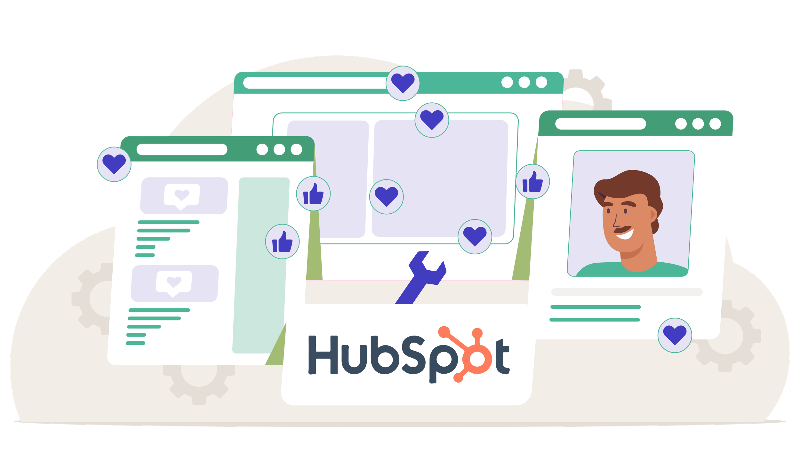There's a right way to do things and a wrong way to do them. Sleazy practices on Linkedin are common and tempting, but you should avoid engaging in them. When Marketing on LinkedIn, here's a list of 5 dishonest marketing practices and why you should avoid them.


Automating Everything
This first mistake is the hardest to avoid. Automation is a great (and even sometimes necessary) thing to do with your social media. Once things start to scale up, things can get out of hand for a human to manually manage. In those cases, automation is good, and you want to take advantage of all the available tools these days to help you manage your social media more efficiently. There is, however, a point where too much automation won't be as productive as you think.
Automation is great for many things, but it's not something you should be utilizing in your LinkedIn profile. In fact, if you're the kind of person who likes to read the terms and conditions, you'll learn that the platform actually prohibits it. Understandably, this has yet to stop enterprising programmers and startups from offering solutions that do it anyway.
Besides tempting action from LinkedIn to hinder your account, you'll also achieve the opposite of what you want to aim for with social media profiles. An overly automated profile will give a terrible impression to visitors. Most people are okay with a few automated responses here or there. Still, if every single activity from your account is automated, people will notice it quickly, and it's very off-putting. Think of it as the LinkedIn equivalent of calling a Customer Service line rather than speaking with a human. It just feels lazy, sleazy, and opportunistic.
Contacting The Wrong People
LinkedIn is all about building a network of connections so that you have ample space to show off your professional brand. A lot of LinkedIn "tips and tricks" articles are focused on what you should do to get as many connections as possible. While getting many followers is a great goal to have on social media, you don't want to have a "by any means possible" approach. Some things aren't worth doing to get more followers.
The best example is contacting anyone and everyone and making connection requests. Getting a significant number of followers is great, but why contact someone who works in a different field, lives in a different country, and speaks a different language? The odds of them accepting your request are already low enough. All you'd be doing at this point is harming your profile's reputation little by little.
Your connections need to remain honest. It has to be people that you already know in some way or relevant to what you do. Before you send them a connection request, ask yourself if they are also interested in connecting with you or not. There's no point going for total strangers. They have no reason to connect with you anyway. You'll just come off as sleazy to them.
Using Fake Information
Nobody will know if you make up a story in your summary as long as it sounds realistic. It's not a big deal to make something up there to make a specific point or achieve a purpose. Things get messier when you start making up things on your CV and skills list. Putting in fake jobs or experiences you never had might appear tempting because who will check? It's true; most people aren't going to run background checks on your information. The issue is that those who do are typically the ones that matter the most: potential employers and big clients.
These people will do their due diligence when it comes to verifying your profile information because their money's on the line. They're going to make sure you have a programming degree (if that's what the job requires) and worked with that one company for four years. It's easy to make up the lie, but the hard part is keeping it going. Once you start coming under scrutiny, it'll become harder and harder to keep up appearances. Seeing that someone is lying is, to no one's surprise, the fastest way to never want to do business with them ever again. And it's not just lying about your experience that matters; using a false photo is just as damaging.
30% of recruiters say that they would not consider a candidate with a profile photo that is not of themselves.
You can just stick to what's real. You can't make up a fictional series of successes. If you lie, things will fall apart at some point, and you'll harm your brand and business when that happens. If you feel you need to lie to keep up with other people's profiles, then maybe it's time to get some new experiences. Take a course, branch out, and put in the time and effort to catch up to everyone else - it's the experience that matters anyway, not just saying it on your CV.
Overselling
LinkedIn is a great place to sell, but it's not a marketplace. You can use LinkedIn to promote your new products or services; that's fine. You don't want everything to be about sales, though. It's like automation. People will notice if you treat every post, reply, message, and reaction like a sales opportunity. That'll make people think that you're just using LinkedIn as an ad for your business, trying to get people to buy your products no matter what. Personalization disappears in this process.
LinkedIn is a social media platform - there's much more to do than sell your product. You want to be building your brand, connecting with your audience, and gaining their trust and confidence over time. Treat LinkedIn like a marketplace where you put your ads; you will see little success.
5% of recruiters say they wouldn't consider a candidate with a profile that is spammy or promotional.
Boosting Your Endorsements
There are many ways to get fake endorsements (or recommendations) on LinkedIn. You can do it the hard way and make fake accounts yourself and have them endorse your primary account, or you can purchase services with a horde of fake accounts ready to endorse and recommend your profile for a fee. This isn't just sleazy; this is borderline unethical. It takes advantage of LinkedIn's best feature, which is having your peers speak in favor of you.
If you're not concerned about the ethical problems that come with doing this, you should at least worry about the real dangers of engaging in this behavior. LinkedIn does its best to crack down on this sort of behavior, and the consequences of getting caught are pretty heavy. In the best case, your account will get suspended and de-prioritized by their algorithms very heavily (to counteract your fraudulent endorsements). In the worst case, LinkedIn could outright delete your account permanently, forcing you to either abandon the platform or start from scratch with a fresh account. If your brand is big enough, news of you engaging in this type of behavior will almost irreparably damage your brand, both with customers and colleagues in your field. It's not worth it at the end of the day, so stay away from doing it.












Leave a Comment